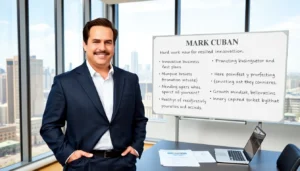When it comes to finances, millennials are often painted in a not-so-flattering light. Imagine a world where avocado toast is blamed for disappearing savings. But is it really all about brunch? Let’s jump into how this generation is navigating money in a landscape filled with student loans, side hustles, and an ever-changing housing market. Spoiler alert: they’re doing more than just sipping lattes.
Table of Contents
ToggleUnderstanding Millennial Financial Habits

The Impact of Student Loan Debt
Student loan debt is a heavyweight champion in the ring against financial stability. With graduates burdened by an average debt of over $30,000, it’s no wonder this generation feels pressed from both sides. High interest rates make repayment feel like a marathon rather than a sprint. Many find themselves putting off significant life milestones, like buying a home or even starting a family, until they feel more financially secure.
This doesn’t mean millennials are apathetic about their finances. But, they’re becoming increasingly savvy about paying off debt faster through refinancing options and aggressive repayment strategies.
Navigating the Housing Market
And then there’s the housing market, which millennials might describe as more daunting than a double espresso on a Monday morning. Rising prices and limited inventory have led many to feel priced out of home ownership. Yet, millennials are becoming innovative in their approach. Many are opting for alternative living arrangements, such as multi-generational homes or co-buying with friends to share the financial burden. They’re also more inclined to consider smaller markets rather than the traditional urban centers. This fresh perspective is reshaping the dynamics of home ownership entirely.
Spending vs. Saving: A Cultural Shift
Investing for the Future
While saving might sound old-fashioned, millennials have embraced a cultural shift towards investing early and often. Many are prioritizing investments in stocks, ETFs, and real estate, focusing on building wealth instead of just accumulating cash.
With platforms that offer fractional shares and robo-advisors, it’s easier than ever. Plus, with apps that provide insights and automated contributions, even those who dread the stock market are jumping in, often encouraged by their peers who share investment tips and success stories.
Using Technology for Financial Management
Technology isn’t just a convenience: it’s become a fundamental part of managing finances. Budgeting apps have become a millennial’s best friend, allowing for easy tracking of expenses and guiding smarter financial choices. Whether it’s setting goals or checking in on spending habits, these tools can turn financial management from a chore into a game.
Plus, online banking and cryptocurrency are pushed to the forefront, allowing for diversification and modern investment strategies that align with the ever-evolving financial landscape.
The Role of Social Responsibility in Financial Decisions
Building Wealth through Entrepreneurship
Entrepreneurship isn’t just a buzzword: for millennials, it’s often a calling. With a desire for autonomy coupled with a strong sense of social responsibility, many are starting their own businesses. Whether launching eco-friendly startups or tech-savvy platforms aimed at solving current societal issues, these ventures carry values that many millennials prioritize.
Heck, they’re more likely to support brands that align with their beliefs, impacting their financial decisions and purchases. They recognize that wealth can be built while maintaining integrity and addressing real-world problems.
Pursuing Passive Income Streams
Finally, millennials are seeking ways to earn money while they sleep. The idea of passive income has gained traction, pushing them to explore multiple streams of revenue. Rental properties, digital content creation, and online courses are just a few options millennials are delving into.
This pursuit isn’t just about making a quick buck: it reflects a deeper understanding of the financial landscape. Millennials recognize the risks of single-source income streams and are taking proactive steps to secure their financial futures.



